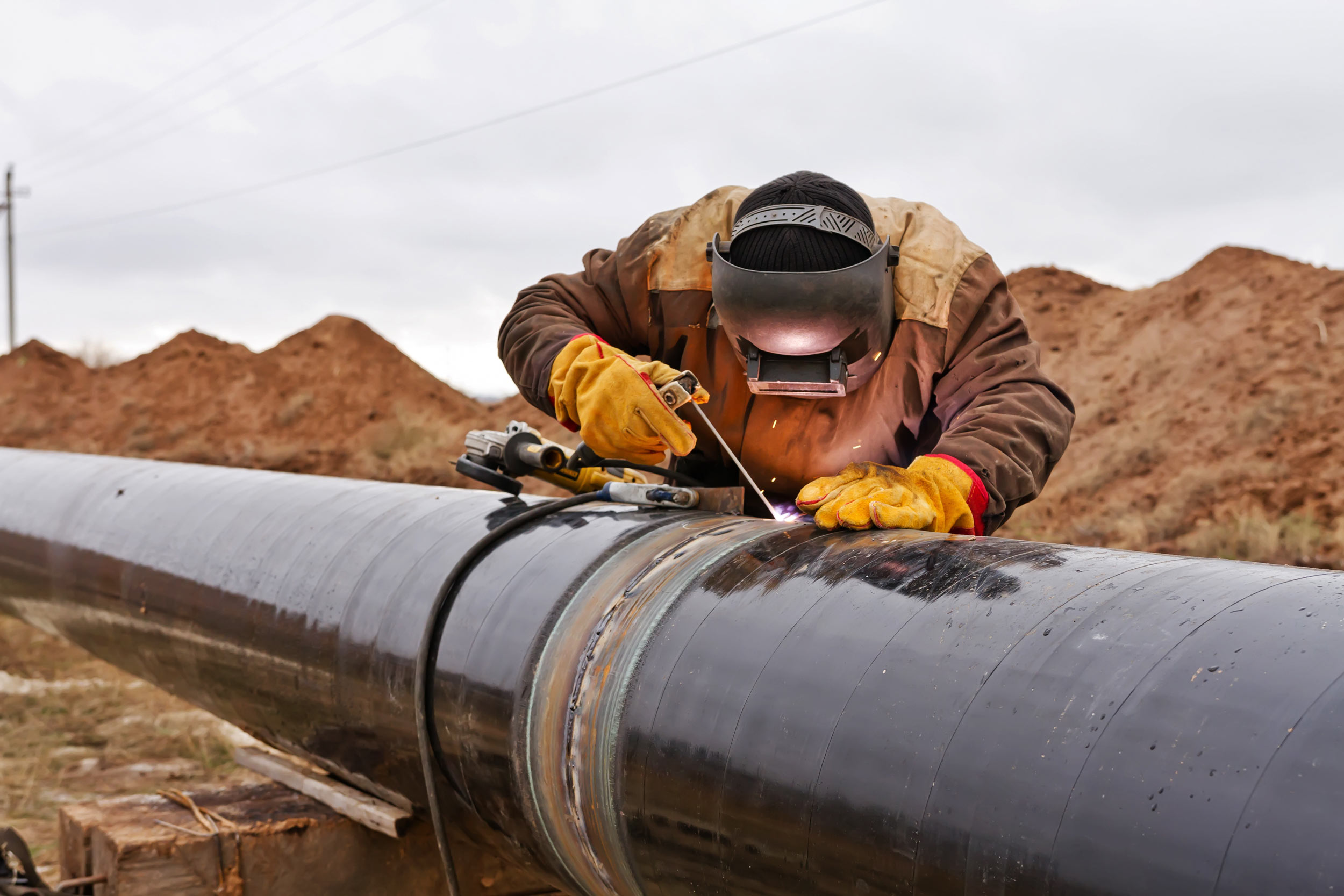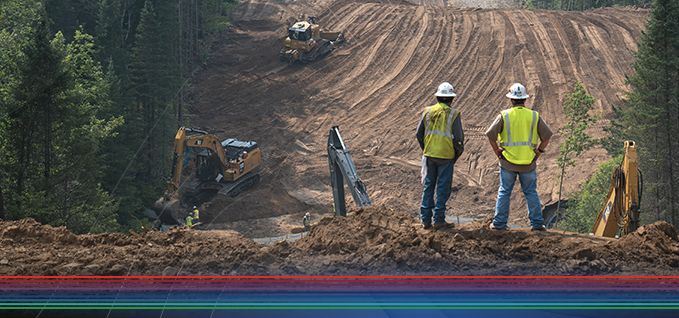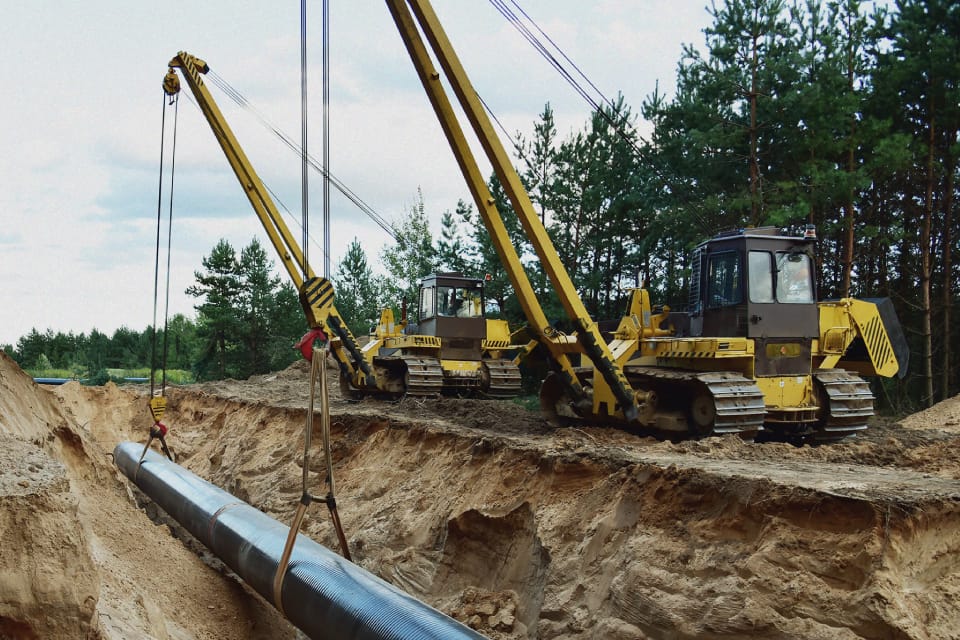Creek Pipe Midland TX: The value of incident drills
Wiki Article
Comprehending the Key Functions of Pipeline Services and Their Effect On Effectiveness
Pipeline solutions play an important role in different sectors, influencing functional effectiveness considerably. Trick attributes, such as sophisticated surveillance innovations and upkeep approaches, are important for lessening downtime. Additionally, regulatory conformity guarantees safety and security and environmental protection. Nonetheless, the interplay in between layout, infrastructure, and financial elements can make complex these procedures. Comprehending just how these elements impact general efficiency raises essential concerns regarding ideal methods and future advancements in the area.The Function of Technology in Pipeline Surveillance
As developments in innovation continue to progress, the importance of effective pipeline monitoring has ended up being significantly evident. Modern pipeline systems count on sophisticated tracking tools that improve operational effectiveness and safety and security. Technologies such as real-time information analytics, sensing units, and drones give operators with instant insights into pipe conditions, enabling them to discover leaks, corrosion, and other potential issues prior to they intensify into considerable problems.The integration of Net of Points (IoT) devices has changed typical surveillance approaches, enabling for continuous security and automated reporting. This proactive method not only decreases dangers but also maximizes maintenance timetables and resource allowance. Additionally, advanced software application systems promote data visualization and analysis, equipping decision-makers to respond promptly to anomalies. Jointly, these technical advancements not only enhance pipe integrity but additionally foster ecological stewardship by mitigating the possible impact of leakages and spills.
Maintenance Strategies for Boosted Effectiveness
Effective maintenance approaches are necessary for optimizing pipeline efficiency. Carrying out anticipating maintenance methods, sticking to routine inspection methods, and developing durable emergency situation reaction strategies can greatly enhance functional dependability. These strategies not only minimize downtime but likewise add to the total safety and honesty of pipeline systems.Anticipating Upkeep Techniques
Predictive maintenance methods are progressively identified for their ability to enhance operational performance in pipe services. By leveraging data analytics and monitoring technologies, these methods make it possible for drivers to anticipate devices failings prior to they take place. This aggressive strategy minimizes unexpected downtime, minimizes upkeep expenses, and expands the life-span of vital properties. Sensing units and IoT devices play an essential function in gathering real-time data, permitting the evaluation of devices health and wellness and performance patterns. Artificial intelligence formulas assess this data to identify patterns and predict potential concerns. Consequently, pipeline drivers can set up upkeep activities during non-peak times, optimizing source appropriation and making certain continual procedure. Eventually, the adoption of predictive upkeep cultivates a more reliable and efficient pipe facilities.
Regular Evaluation Protocols
Routine examination protocols function as a cornerstone of maintenance techniques aimed at enhancing effectiveness in pipeline operations - Midland pipeline construction company. These procedures include methodical evaluations of pipe honesty, concentrating on detecting potential issues before they rise. Normal evaluations typically include visual evaluations, leak discovery technologies, and stress monitoring to guarantee peak performance. By sticking to recognized routines, operators can recognize deterioration, product wear, or blockage, therefore minimizing downtime and repair prices. Additionally, information accumulated during evaluations can educate anticipating upkeep efforts, allowing for an aggressive method to pipeline monitoring. Inevitably, routine inspections not just prolong the lifespan of pipe infrastructure however also add to safer and extra reliable transport of resources, enhancing general functional performanceEmergency Feedback Planning
Emergency situation feedback planning is important for keeping efficiency in pipeline procedures, making sure that operators are prepared to resolve unanticipated occurrences swiftly and properly. A well-structured emergency feedback plan consists of clear protocols, assigned duties, and communication strategies to alleviate risks related to pipeline failures. Normal drills and training enhance team readiness and familiarize workers with emergency situation procedures. Furthermore, having readily offered resources, such as spill containment devices and emergency situation get in touch with listings, can significantly minimize feedback times. By incorporating real-time monitoring innovations, drivers can quickly identify and respond to issues, lessening ecological impact and operational downtime. Eventually, an extensive emergency situation reaction strategy not just safeguards possessions and employees but likewise strengthens the general effectiveness of pipe solutions.Regulatory Compliance and Safety Criteria
Regulative conformity and safety and security criteria play an important function in the pipe solutions industry. Midland oilfield pipeline services. Adhering to market laws assures that firms carry out efficient safety and security protocols and risk monitoring approaches. This dedication not just shields workers and the atmosphere but also enhances total functional effectivenessCompliance With Industry Rules
Conformity with market policies is essential for guaranteeing the safety and performance of pipe operations. Regulative frameworks, such as those developed by the Epa (EPA) and the Pipeline and Hazardous Materials Safety Management (PHMSA), set stringent criteria that drivers should abide by. These laws cover different aspects, including pipe style, construction, maintenance, and tracking, assuring that systems operate safely and properly. Non-compliance can lead to serious fines, operational hold-ups, and environmental hazards. By sticking to these regulations, pipeline companies not just safeguard public safety and security and the atmosphere yet additionally improve their operational performance. Ultimately, regulative conformity promotes trust fund among stakeholders, making certain that pipeline solutions can operate effortlessly in an affordable landscape while meeting lawful commitments.
Security Method Execution
Efficient safety protocol execution is an essential part of pipeline operations, closely connected to regulative compliance and safety standards. Complying with these procedures not only assures the security of workers however also safeguards the setting and infrastructure. A durable safety and security structure includes normal training, detailed examinations, and using proper safety equipment. Organizations has to remain watchful in upgrading their protocols to show modifications in policies and technical developments. Conformity with well established security standards lessens the risk of mishaps and enhances functional efficiency. Furthermore, a culture of security cultivates worker involvement and responsibility, contributing to general business success. Eventually, efficient safety and security procedure execution is critical in keeping the integrity of pipeline solutions and attaining lasting sustainability in operations.Risk Administration Strategies
Implementing durable risk administration approaches is why not try this out essential for guaranteeing that pipe procedures adhere to regulatory demands and security standards. Organizations needs to identify possible dangers and examine threats connected with pipe activities. This includes performing extensive examinations, utilizing innovative surveillance technologies, and maintaining conformity with industry guidelines. Normal training for employees on safety protocols boosts situational recognition and prepares teams to react properly to emergencies. In addition, establishing backup plans and carrying out drills can substantially reduce dangers. Collaborating with regulatory bodies ensures alignment with advancing safety standards. By focusing on threat monitoring, pipe services can enhance functional efficiency while protecting both the environment and public safety. Inevitably, a positive method to run the risk of management cultivates a society of security within visit this website the sector.Pipeline Layout and Framework Considerations
Exactly how can the design and framework of pipelines influence overall functional effectiveness? The setup of pipes plays an important function in determining their performance. Effective layout lessens friction losses, hence minimizing energy consumption throughout fluid transport. Elements such as size, material option, and design straight effect circulation rates and maintenance requirements.Additionally, critical placement of shutoffs and checking systems improves functional control and safety. Midland oilfield pipeline services. Framework considerations, consisting of ease of access for upkeep and repair, substantially impact downtime and total efficiency
Furthermore, incorporating advanced innovation for real-time surveillance facilitates prompt detection of leakages or inefficiencies, guaranteeing quick feedbacks to issues. The overall structural stability, influenced by product sturdiness and ecological variables, also shapes long-lasting functional success. Subsequently, thoughtful layout and durable framework are important for taking full advantage of pipeline effectiveness, inevitably adding to the dependability and productivity of pipeline services.
Ecological Influence and Sustainability Practices
While the need for pipeline services continues to grow, understanding the ecological effect and taking on sustainability practices has actually come to be progressively crucial. The building and construction and procedure of pipes can notably impact communities, wild animals environments, and water resources. To mitigate these influences, business are carrying out sophisticated technologies and techniques targeted at reducing discharges, avoiding spills, and minimizing land disturbance.
Sustainability efforts frequently consist of using eco-friendly products, improving energy performance, and employing renewable resource sources to power operations. In addition, companies are significantly carrying out extensive ecological evaluations prior to job initiation, ensuring compliance with guidelines and stakeholder engagement.

Price Administration and Economic Consider Pipeline Providers
As the pipe market expands, efficient expense management and recognizing financial factors come to be essential for keeping competitiveness. Business encounter various financial pressures, including fluctuating product costs, labor expenditures, and regulative conformity fees. To browse these obstacles, pipeline service providers have to adopt calculated monetary planning and budgeting methods.Purchasing innovation can enhance functional effectiveness, ultimately lowering costs gradually. In addition, efficient task management assurances that resources are assigned successfully, lessening hold-ups and unexpected costs.

Market conditions, such as need for power and geopolitical factors, also influence economic viability. Business need to continue to be dexterous, adjusting their methods in response to these external factors.
Often Asked Concerns
What Are the Various Sorts Of Pipeline Provider Available?
Numerous sorts of index pipe services include transport, storage space, upkeep, examination, and fixing. Each service plays an essential duty in ensuring the seamless activity of products, boosting safety and security, and decreasing functional disturbances throughout various fields.Just How Commonly Should Pipeline Inspections Be Carried Out?
Pipeline inspections should be performed on a regular basis, normally each to three years, relying on the type and problem of the pipeline. Much more frequent examinations may be necessary for older or risky pipelines to guarantee safety and security and stability.
What Are the Key Causes of Pipeline Failures?
The main reasons for pipe failures consist of corrosion, damaged building, material flaws, external damages, leaks, and functional errors. Each aspect adds substantially to prospective threats, highlighting the significance of normal maintenance and tracking for safety.Just How Can Firms Enhance Pipeline Solution Reliability?
Firms can improve pipeline solution reliability by carrying out regular upkeep timetables, utilizing sophisticated surveillance innovations, conducting detailed assessments, buying employee training, and adopting positive risk monitoring strategies to expect and reduce prospective failings.What Duty Do Operators Play in Pipeline Services?
Operators play a necessary duty in pipeline services by making sure secure transport, maintaining devices, monitoring system honesty, working with maintenance, and replying to emergencies. Their experience directly affects functional efficiency and reduces interruptions in service shipment.Report this wiki page